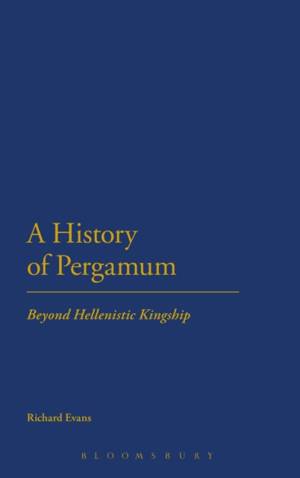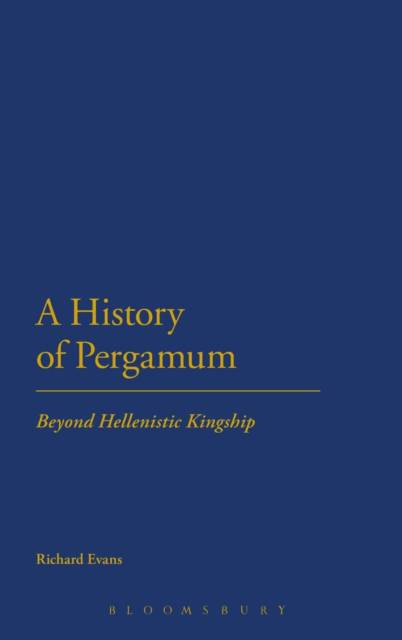
- Afhalen na 1 uur in een winkel met voorraad
- Gratis thuislevering in België vanaf € 30
- Ruim aanbod met 7 miljoen producten
- Afhalen na 1 uur in een winkel met voorraad
- Gratis thuislevering in België vanaf € 30
- Ruim aanbod met 7 miljoen producten
Zoeken
€ 339,45
+ 678 punten
Uitvoering
Omschrijving
The Kingdom of Pergamum emerged from the great period of instability which followed the death of Alexander the Great. Over the next century Pergamum was to become one of the wealthiest states in the eastern Mediterranean. The state of Pergamum was incorporated into the Roman Empire between 133/129 BCE and it eventually became Rome's wealthiest province. The whole of Asia Minor suffered in the civil wars which ended the Roman Republic, and Pergamum did not escape the exactions demanded of the Greek cities by Pompey, Caesar and Antony. In the subsequent peace, ushered in by Augustus, Pergamum regained its prosperity and became one of the cultural centres of the Roman Empire. Its ruling dynasty - the Attalids - were patrons of the arts and while in power were responsible for the remarkable embellishment of their capital at Pergamum. Other more ancient cities such as Ephesus and Miletus also benefited from their government. This volume surveys Pergamum's history from the late Third Century BCE to the Second Century CE.
Specificaties
Betrokkenen
- Auteur(s):
- Uitgeverij:
Inhoud
- Aantal bladzijden:
- 240
- Taal:
- Engels
Eigenschappen
- Productcode (EAN):
- 9781441124142
- Verschijningsdatum:
- 12/07/2012
- Uitvoering:
- Hardcover
- Formaat:
- Genaaid
- Afmetingen:
- 160 mm x 236 mm
- Gewicht:
- 498 g

Alleen bij Standaard Boekhandel
+ 678 punten op je klantenkaart van Standaard Boekhandel
Beoordelingen
We publiceren alleen reviews die voldoen aan de voorwaarden voor reviews. Bekijk onze voorwaarden voor reviews.







